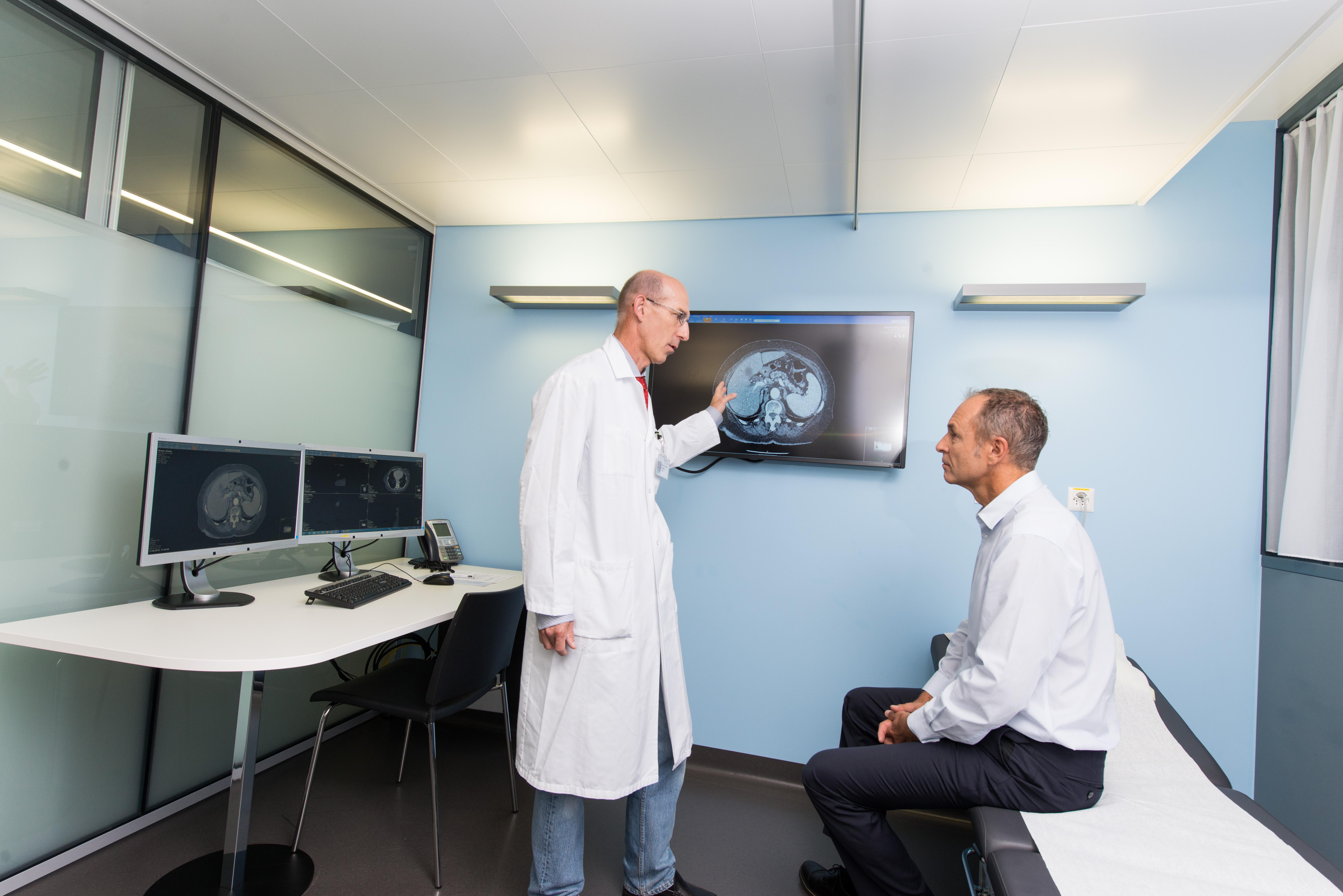Frequently asked questions about clinical trials
Would you like to learn more about how clinical trials are conducted and organized? Here are the answers to your most important questions.
-
What are clinical trials?
Clinical trials are investigations in the context of treatments in and for patients. Their goal is to determine the best treatment for a particular disease - either by further improving an existing therapy, or by examining new substances or treatments. This is vital for patients with diseases that have not sufficiently responded to previously known therapies or that have no established course of treatment to date.
Clinical trials differ from basic research, which investigates the causes and development processes of diseases in the laboratory and researches novel drugs. Clinical trials can only be started once these preclinical trials have been successfully completed.
-
Who carries out clinical trials?
Clinical trials are conducted by pharmaceutical companies, contract research institutes, government institutions, and cooperative groups such as SAKK. Based on a performance agreement with the federal government, SAKK has been the primary contact in cancer research for authorities, associations and companies in Switzerland since 1965.
-
Who decides whether a clinical trial may be performed?
The Swiss Human Research Act (HFG) regulates human research in Switzerland. The aim of the law is to protect human dignity, personality, and health in research. At the same time, it should create favorable conditions for research and ensure its quality and transparency.
In principle, a study may only be carried out if it has been previously audited and approved by an independent supervisory body. In Switzerland, these are the ethics committees and Swissmedic.
-
Where can I find out about current trials?
As a sponsor of clinical trials, SAKK publishes important information on all its ongoing trials on this website under Trials. On the portal for human research in Switzerland by the Federal Office of Public Health (FOPH), you will find information about approved trials in Switzerland. You can also view clinical trials conducted worldwide in the international registry of the American National Institute of Health.
-
Can I participate in a trial?
In any case, careful examination is required in order to determine whether taking part in a clinical trial is an option for you. You can find more information on this topic on this page.
-
What are my rights and obligations as a trial participant?
As a participant in a clinical study you have the right to
- particularly careful information, treatment and monitoring;
- protection of personal data;
- ongoing information about alternatives, new findings on the effects of the intervention under investigation, the risks, benefits, your clinical condition and results of the trial;
- comprehensible explanations;
- freedom to make up your own mind and self-determination;
- termination of trial participation at any time.
At the same time, you are obliged to
- reliably keep all appointments;
- follow your physician's instructions and take any medication as directed;
- answer your physician’s questions on your health truthfully;
- enter your data and comments accurately and in as much detail as possible in the trial diary, notebook or questionnaires;
- inform the trial physician immediately if you notice any health changes or abnormalities;
- cooperate trustfully with your physician, who depends on you to receive all the information in order to provide maximum safety.
-
How is a trial organized? Who are my contact persons?
The principal investigator and his team (meaning physicians, nursing staff, trial coordinator, etc.) ensure that the trial protocol is observed when a patient is treated. Also, the trial participant maintains close contact with his attending physician, who continues to supervise him or her over the course of the trial.
-
What is a phase?
Clinical cancer research in the narrower sense is conducted over three phases (phase I, phase II, phase III), which differ in terms of their objectives and the applied procedures. Each new phase depends on and builds on the findings of the previous phase.
-
What is a trial design?
A trial design describes the structure of a clinical trial. Depending on the issues or objectives of the trial, a different design is chosen. For example, randomized trials, single-blind or double-blind trials and open studies constitute different trial designs.
-
Where does the treatment take place?
Like any other patient, you will be treated in an oncological center, outpatient clinic, hospital, a specialist or your primary care physician's practice. In many trials, however, in order to ensure optimal monitoring, the treatment must be administered at an oncological center that has the necessary expertise and infrastructure. On our trial pages, you will find a list of centers and hospitals that are able to treat patients in the framework of a particular trial.
-
What happens to my personal data during and after the trial?
All data collected during the clinical study is subject to the professional code of confidentiality. All personal data concerning you, your heath and your treatment is recorded for the purposes of analysis and evaluation of the trial. However, all data is processed in an encripted (anonymous) format. Accordingly, your privacy is protected at all times.
-
What are the costs of participating in a clinical trial?
Participating in a clinical trial is synonymous with receiving treatment and it does not entail any extra costs, even if the examinations and therapy received in the framework of the trial are more expensive than the standard treatment.

